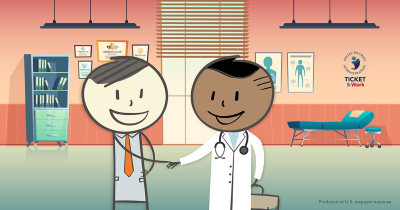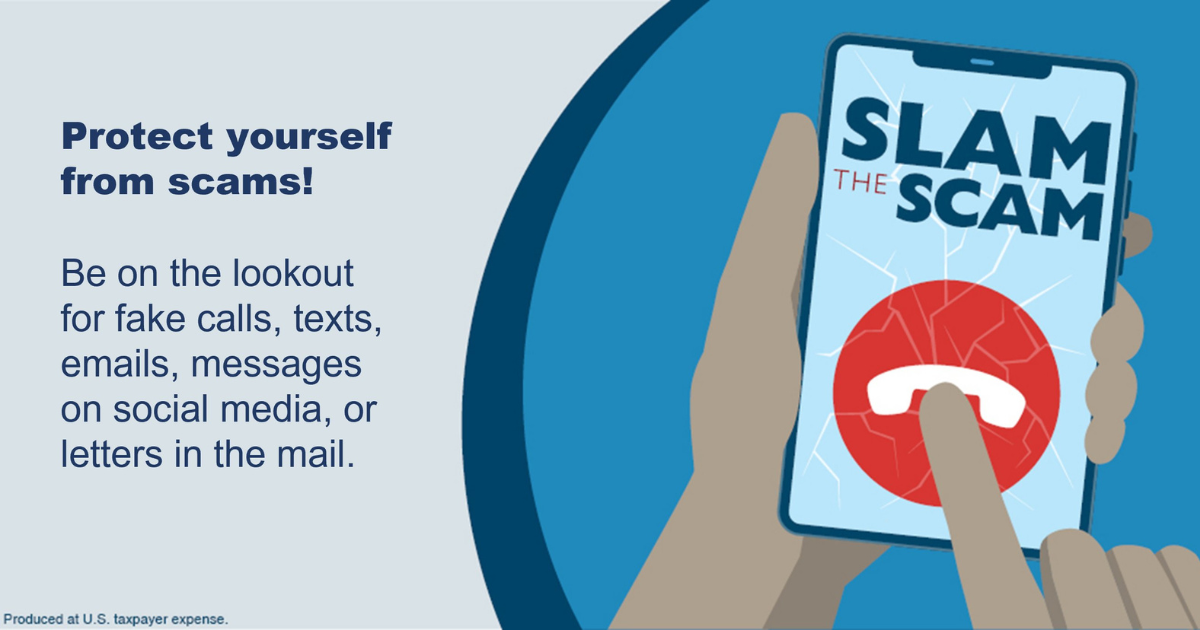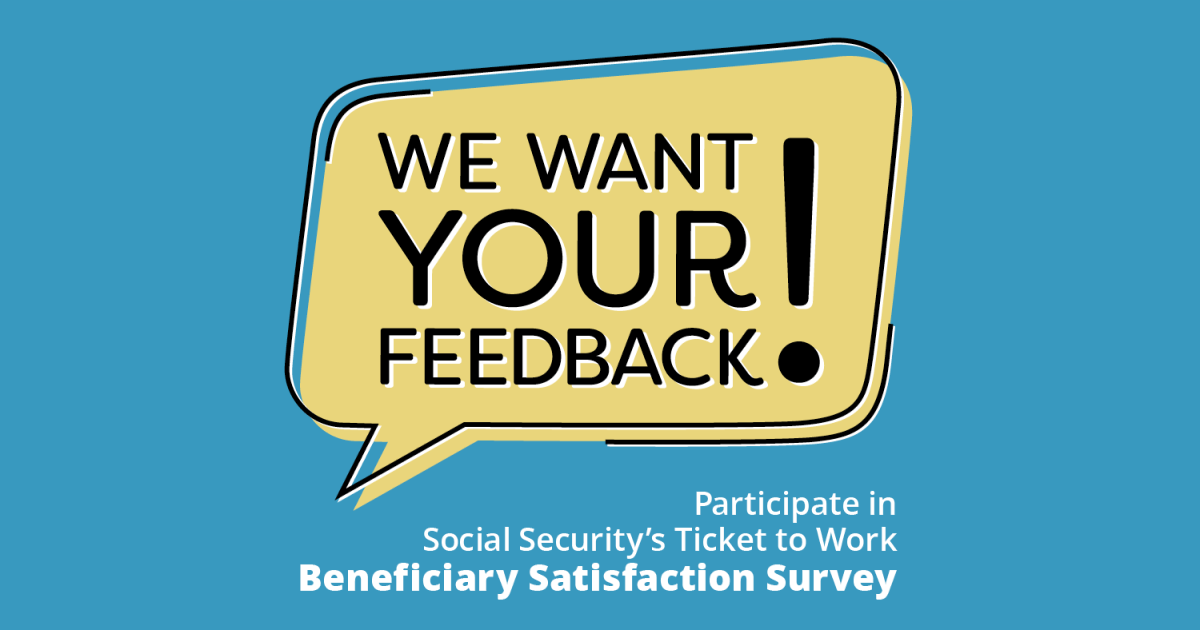 What would you do if you had a great opportunity for a dream job but thought that you would lose your Medicaid coverage if you went to work? Would you take the job or let it pass? We know this decision can be scary for many who rely on their Medicaid coverage, but we have good news.
What would you do if you had a great opportunity for a dream job but thought that you would lose your Medicaid coverage if you went to work? Would you take the job or let it pass? We know this decision can be scary for many who rely on their Medicaid coverage, but we have good news.
As long as you receive a Social Security benefit (SSI/SSDI) in any amount, you'll keep your Medicare or Medicaid. Many people believe that they will automatically lose their Medicare or Medicaid as soon as they start working.
But working does not necessarily mean losing access to federal or state healthcare benefits because there are protections in place, called Work Incentives, that help people who work and receive disability benefits keep those important benefits.
Today's post explores a Work Incentive for people who receive Supplemental Security Income (SSI), Medicaid While Working. With this Work Incentive, you can pursue your career goals with the Medicaid support you need.
What is Medicaid While Working?
After you start working, your Medicaid coverage can continue, even if your earnings (alone or in combination with your other income) become too high to receive SSI. Under the Continued Medicaid Eligibility Work Incentive (Section 1619(B)), you may qualify for continued Medicaid coverage when your SSI payments stop if you:
- Have been eligible for an SSI benefit for at least one month.
- Continue to be disabled (have not medically improved).
- Meet all other non-disability SSI requirements, including the resources test.
- Need Medicaid to work.
- Have gross earned income (earnings before taxes and other deductions) that are below your state's threshold of eligibility.
Threshold amounts
Social Security uses a state threshold amount to determine eligibility for Medicaid While Working. Each state has a different threshold amount, including different threshold amounts for people who are blind. The threshold amount is calculated based on the values of SSI cash benefits, Medicaid benefits and publicly funded personal or attendant care benefits. Social Security's Red Book can help you find your state's threshold amount.
Even if you earn more than your state's threshold amount, you can still be eligible for Medicaid While Working if you have:
- Impairment-Related Work Expenses
- Blind Work Expenses
- A Plan to Achieve Self-Support
- Publicly funded personal attendant expenses (These are expenses paid for by federal state or local funds other than Medicaid.)
- Medical expenses above your state's average amount
Are there any other ways to keep Medicaid coverage?
In some states, through the Medicaid Buy-In Program you may be able to apply to buy Medicaid from the state Medicaid agency if you are disabled and no longer entitled to free Medicaid because you work. You may qualify if you:
- Meet Social Security's definition of having a disability.
- Would be eligible for SSI if you earned less income.
To see if your state has a Medicaid Buy-In program and if you qualify, contact your State Medicaid Program.
Need Help on Your Career Path?
As you consider work, search for a job and transition to the workplace, Medicaid While Working and other Work Incentives, like Social Security's Ticket to Work (Ticket) Program, can give you the support you need to find financial independence.
The Ticket Program supports career development for people ages 18 through 64 who receive Social Security disability benefits (SSDI/SSI) and want to work. The Ticket Program is free and voluntary and helps people with disabilities move toward financial independence and connects them with the services and support they need to succeed in the workforce.
If you have questions about how work will affect your healthcare benefits, take a look at our fact sheet, Medicare and Medicaid Employment Supports, for more information. You can also contact the Ticket to Work Help Line at 1-866-968-7842 or 1-866-833-2967 (TTY), Monday through Friday, 8 a.m. to 8 p.m. ET.
Learn More
To learn more about the Ticket Program, visit choosework.ssa.gov or call the Ticket to Work Help Line at 1-866-968-7842 or 1-866-833-2967 (TTY), Monday through Friday, 8 a.m. to 8 p.m. ET. Ask for a list of service providers or find providers on your own using the Ticket Program Find Help tool.
You can also learn more by registering for a free, online Work Incentives Seminar Event webinar. Or text TICKET to 1-571-489-5292 to receive Ticket Program texts. Standard messaging rates may apply, and you can opt out at any time.
 Adaptive sports are competitive or recreational activities that are inclusive of people with disabilities. Sports teams and community engagement provide numerous benefits for individuals with disabilities.
Adaptive sports are competitive or recreational activities that are inclusive of people with disabilities. Sports teams and community engagement provide numerous benefits for individuals with disabilities. With the release of the
With the release of the  Healthy Choices
Healthy Choices Are you a veteran looking for a job? Did you know that there are online job boards featuring companies that are specifically looking for the skills veterans bring to the workforce? Here, we highlight two sites:
Are you a veteran looking for a job? Did you know that there are online job boards featuring companies that are specifically looking for the skills veterans bring to the workforce? Here, we highlight two sites:  Social Security is conducting a Ticket to Work Beneficiary Satisfaction Survey. If you received a letter inviting you to participate, we encourage you to use the link or QR code provided in the letter to access the survey and to take time (only about 15 minutes!) to share your feedback.
Social Security is conducting a Ticket to Work Beneficiary Satisfaction Survey. If you received a letter inviting you to participate, we encourage you to use the link or QR code provided in the letter to access the survey and to take time (only about 15 minutes!) to share your feedback. To help people who receive benefits and payments keep up with the changing cost of living, Social Security beneficiaries often receive an annual
To help people who receive benefits and payments keep up with the changing cost of living, Social Security beneficiaries often receive an annual